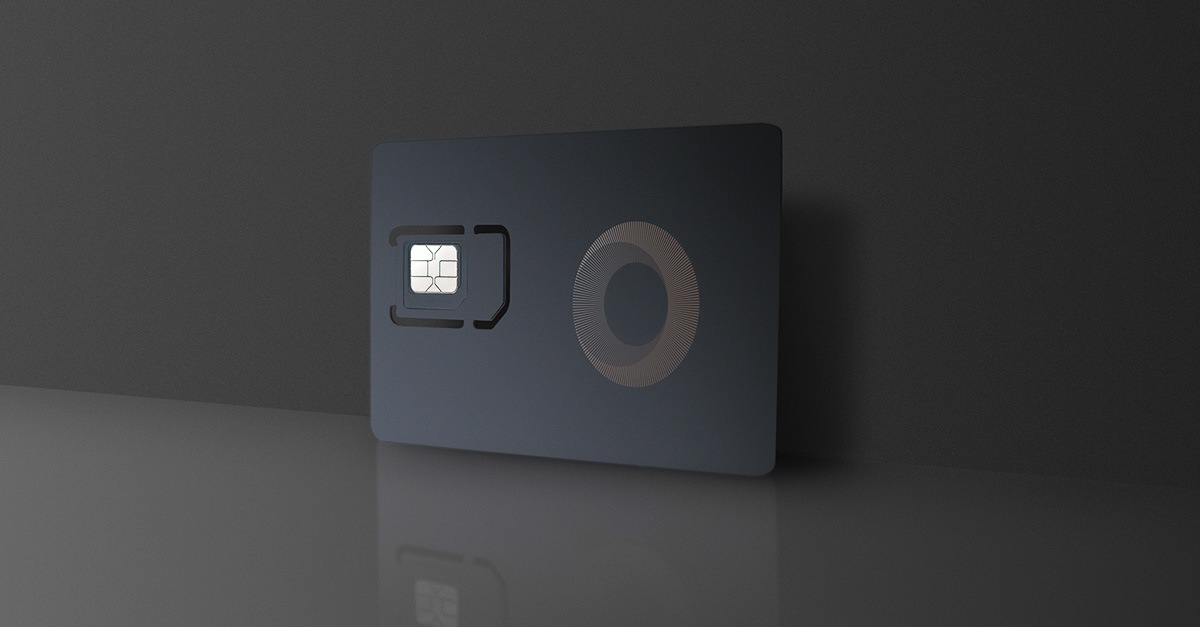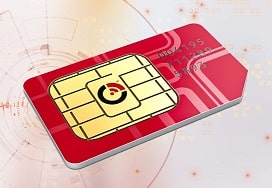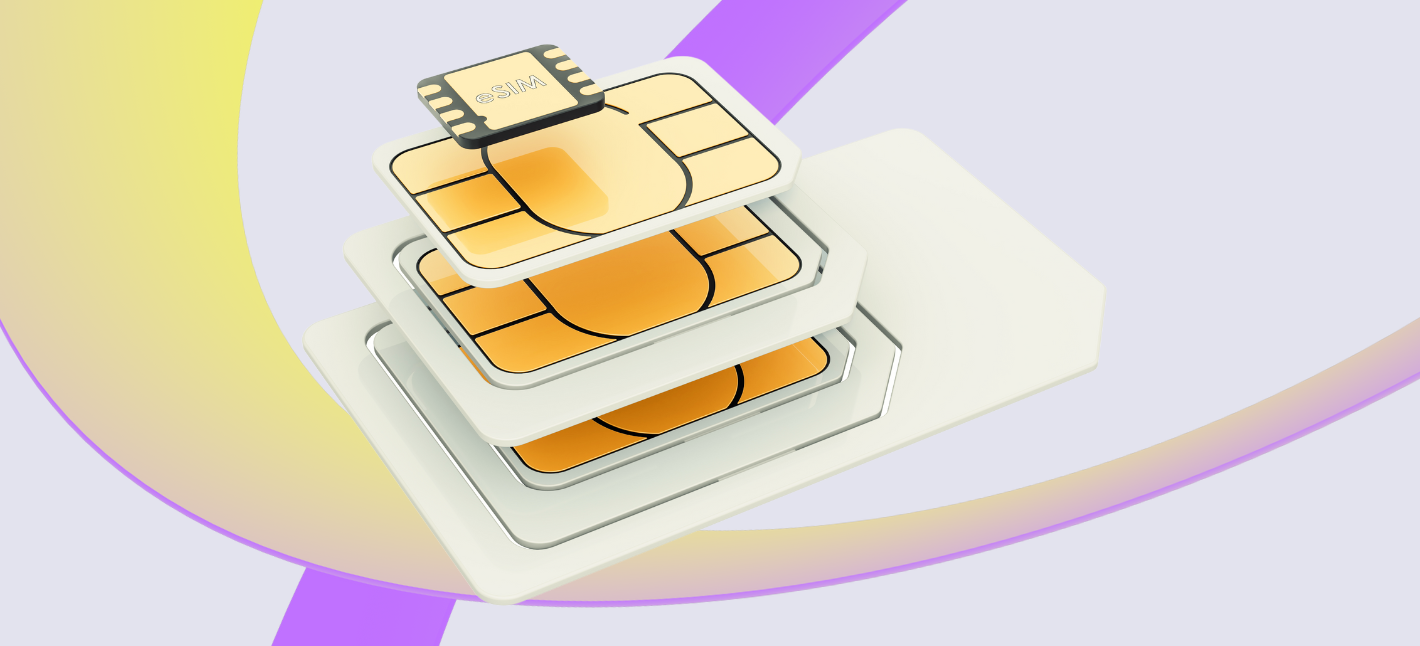Sim Card For Iot IoT SIMs Embedded Connectivity
Sim Card For Iot IoT SIMs Embedded Connectivity
Blog Article
Prepaid Iot Sim Card IoT SIM Cards Fair pricing reliability expert

The integration of Internet of Things (IoT) technologies into numerous sectors has remodeled how gadgets work together and talk. Central to this transformation is the role of SIM cards in IoT connectivity. These small, invaluable parts are crucial in facilitating safe communication between gadgets and networks, enabling seamless data switch and remote management.
First, understanding the normal function of SIM playing cards helps contextualize their significance in IoT. Originally developed for cellphones, SIM cards authenticate devices on a cellular community, offering a safe means of identity verification. Beyond individual users, this capability has expanded into the realm of IoT, where countless gadgets now rely on this expertise to connect and communicate (Iot Sim Card copyright).
Best IoT SIM Card Prepaid 4G SIM Card Data
The range of gadgets using SIM playing cards in IoT is outstanding, starting from smart meters and wearables to automotive methods and industrial machinery. Each of those purposes presents unique challenges and requirements for connectivity. The presence of a SIM card in each system ensures that these diverse components can function successfully inside a bigger community infrastructure.

IoT functions often require real-time data change, making a dependable connection essential. SIM cards allow gadgets to connect on to cellular networks, offering not only flexibility but also mobility. This is especially advantageous for applications that require gadgets to function in remote or difficult environments, the place traditional wired connections might not be possible.
Nb-Iot Sim Card Marketplace
Increased safety is one other crucial benefit offered by SIM playing cards. In a world increasingly fraught with cybersecurity threats, the ability to secure system communication through SIM-based authentication is invaluable. This means that information despatched and received is protected against unauthorized entry, making it tougher for cybercriminals to intercept delicate data.
Moreover, the deployment of eSIM know-how has further enhanced the relevance of SIM cards in IoT connectivity. eSIMs, or embedded SIMs, allow for distant provisioning of cellular community subscriptions. This offers immense flexibility, enabling easier administration and updates of system networks without the want to physically exchange SIM playing cards. This is especially useful for large-scale IoT deployments, where managing quite a few devices can be cumbersome.
The scalability supplied by SIM playing cards is one other factor that fuels their importance in IoT applications. As companies broaden their IoT ecosystems, the ability to attach extra devices shortly and effectively can significantly improve operational agility. SIM playing cards set up a standardized method for connectivity that allows for extra easy integration of new units into current networks.
Furthermore, as more industries embrace IoT technologies, the demand for dependable connectivity options continues to develop. SIM playing cards are now increasingly engineered to fulfill the specific needs of various sectors. For instance, in the agricultural sector, units equipped with SIM cards can provide real-time information on soil conditions and crop health, enabling farmers to make informed decisions that enhance yield.
Iot Sim Card SIM cards stopped working IoT Modules
Additionally, the logistics business is witnessing a revolution pushed by IoT, with SIM playing cards taking half in a vital role in tracking shipments and managing fleets. The capacity to monitor vehicle performance and site in real time allows for extra environment friendly routing and gas administration, which interprets into important price savings for businesses.
The evolution of IoT technologies also brings with it the need for future-proof solutions. The function of SIM cards will likely continue to adapt, paving the best way for enhanced performance and integration with upcoming technologies. As 5G networks roll out, SIM playing cards are set to supply even larger information transfer rates and decrease latency, additional enhancing the capabilities of IoT units.
Hologram Iot Sim Card Single-Core Global eUICC IoT SIM
One regarding side, nevertheless, is the potential for community fragmentation. With several cell network operators (MNOs) deploying their proprietary options, guaranteeing universal connectivity can turn into difficult. In this landscape, interoperability becomes important to make sure devices can communicate across different networks, regardless of the SIM card provider.
Transitioning to a next-generation IoT landscape involves considering the environmental impacts of quite a few IoT gadgets. As extra gadgets connect by way of SIM playing cards, producers should give consideration to energy effectivity and sustainable practices to minimize the ecological footprint associated with increased connectivity. Employing energy-efficient technologies can mitigate the risks of overwhelming energy calls for on our energy grids.
Cellular Iot Sim Card IoT SIM Cards Explained Connectivity
The resilience provided by SIM cards is a notable consider IoT deployments, significantly concerning operational continuity. In the occasion of community disruptions or failures, gadgets can swap between out there networks to take care of connectivity. This capability ensures that crucial operations aren't halted, notably in sectors such as healthcare and emergency providers where communication is paramount.
The use of SIM cards in IoT connectivity additionally opens up vast alternatives for data analytics and insights. By amassing knowledge from connected units, organizations can harness real-time information for decision-making. This may vary from routine maintenance alerts to predictive analysis that anticipates system failures, ultimately resulting in enhanced operational efficiency.
As the digital landscape evolves, the regulatory environment surrounding IoT and SIM card usage will likely endure modifications as well. Policymakers want to ensure that the fast innovation in IoT technologies continues to profit customers whereas additionally safeguarding against potential abuses and vulnerabilities. Striking this stability requires continuous dialogue between stakeholders, together with government agencies, mobile network operators, and know-how developers.
The way forward for IoT connectivity will undeniably hinge on continued enhancements in SIM card technology. As demand grows and new functions are developed, SIM playing cards will evolve to satisfy these wants effectively. From elevated security measures to supporting emerging technologies, their function will remain foundational to connecting a myriad of gadgets throughout multiple sectors.
Iot Global Sim Card IoT SIM Cards Explained Understanding Differences

In summary, the function of SIM playing cards in IoT connectivity is characterized by their capabilities to offer safe, versatile, and scalable solutions that facilitate communication across a range of units. As industries innovate and undertake IoT technologies, SIM playing cards will stay integral to making sure reliable and efficient connectivity. The continued evolution of this expertise will from this source pave the greatest way for more advanced IoT applications, reworking the landscape of interconnected devices. As we look ahead, the impression of SIM cards on IoT connectivity shall be pivotal in shaping the future of communication expertise.
- SIM playing cards enable seamless secure connections between IoT devices and cellular networks, guaranteeing reliable information transmission.
- They play an important position in device authentication, preventing unauthorized access and maintaining knowledge integrity across related techniques.
- By supporting multiple network technologies (2G, 3G, 4G, and 5G), SIM cards provide flexibility in IoT deployments, catering to various utility wants.
- IoT SIM cards may be designed for specific geographical regions, optimizing connectivity and performance in different environments.
- Remote administration capabilities of SIM playing cards enable for over-the-air updates and diagnostics, enhancing operational efficiency.
- Many IoT SIM options help eSIM know-how, which allows for programmable connectivity, enabling devices to change networks with out physical SIM substitute.
- SIM playing cards facilitate international reach by allowing devices to connect with a number of networks, important for purposes like asset monitoring and fleet administration.
- They enable cost-effective options for IoT by allowing subscription fashions tailored to information usage and operational necessities.
- Industry-specific SIM cards can supply extra features corresponding to enhanced safety protocols and higher performance in demanding situations.
- The integration of SIM cards in IoT devices accelerates the adoption of smart technologies throughout varied sectors, driving innovation and efficiency.undefinedWhat is the function of SIM cards in IoT connectivity?undefinedSIM cards are important for IoT gadgets as they provide them with a unique identification on mobile networks, enabling safe communication and information transmission. They ensure that devices can connect with the web, ship and receive knowledge, and authenticate their presence within the community.
How do SIM cards assist security in IoT devices?undefinedSIM cards enhance safety by way of encryption and authentication mechanisms. They store distinctive identifiers and cryptographic keys, guaranteeing that solely authorized units can hook up with the community, thus defending sensitive knowledge from unauthorized entry.
2g Iot Sim Card SIM cards stopped working IoT Modules
Are there several types of SIM cards for IoT applications?undefinedYes, there are numerous types of SIM playing cards for IoT, corresponding to M2M SIM, eSIM, and iSIM. M2M SIM playing cards are designed for machine-to-machine communication, whereas eSIMs and iSIMs supply extra flexibility and distant provisioning capabilities that are excellent for large-scale IoT deployments.
Can IoT devices operate without SIM cards?undefinedWhile some IoT units can connect by way of Wi-Fi or other native networks, many require SIM playing cards to entry cellular networks, particularly in distant areas where Wi-Fi is unreliable. SIM playing cards allow these units to hold up connectivity without relying on fixed infrastructure.
How does a SIM card impact the worth of IoT connectivity?undefinedThe price of IoT connectivity is influenced by the kind of SIM card used, data plans, and repair suppliers. IoT solutions with SIM cards typically incur month-to-month fees for data utilization. Choosing the best plan can help handle costs successfully.
What challenges are associated with using SIM cards in IoT?undefinedChallenges embody managing deployments at scale, ensuring secure information transmission, and handling SIM card logistics. Additionally, issues such as connectivity drops and protection limitations can influence the efficiency of IoT functions.
Iot Sim Card South Africa IoT SIM Cards
How do I choose the right SIM card for my IoT project?undefinedSelecting the proper SIM card includes evaluating the connectivity needs, data usage requirements, protection area, and compatibility with the IoT device. Consulting with service providers can help make an knowledgeable choice tailor-made to the precise utility.

What happens if the SIM card in an IoT system fails?undefinedIf a SIM card fails, the IoT system will lose its ability to speak over the network. Recovery typically entails changing the SIM card or troubleshooting the gadget to revive connectivity, depending on the reason for the failure.
Can I remotely manage SIM playing cards in my IoT devices?undefinedYes, many service suppliers offer remote management solutions for SIM cards, permitting customers to observe efficiency, activate or deactivate SIMs, and manage knowledge plans efficiently throughout quite a few units in real-time.
Global Iot Sim Card Narrowband IoT SIM cards
How do eSIMs change the landscape of IoT connectivity?undefinedeSIMs permit for distant provisioning and administration, eliminating the necessity for physical SIM card swaps. This flexibility streamlines deployments, reduces logistics prices, and enhances the scalability of IoT solutions, making site web them more adaptable to evolving wants (Iot Gsm Sim Card).
Report this page